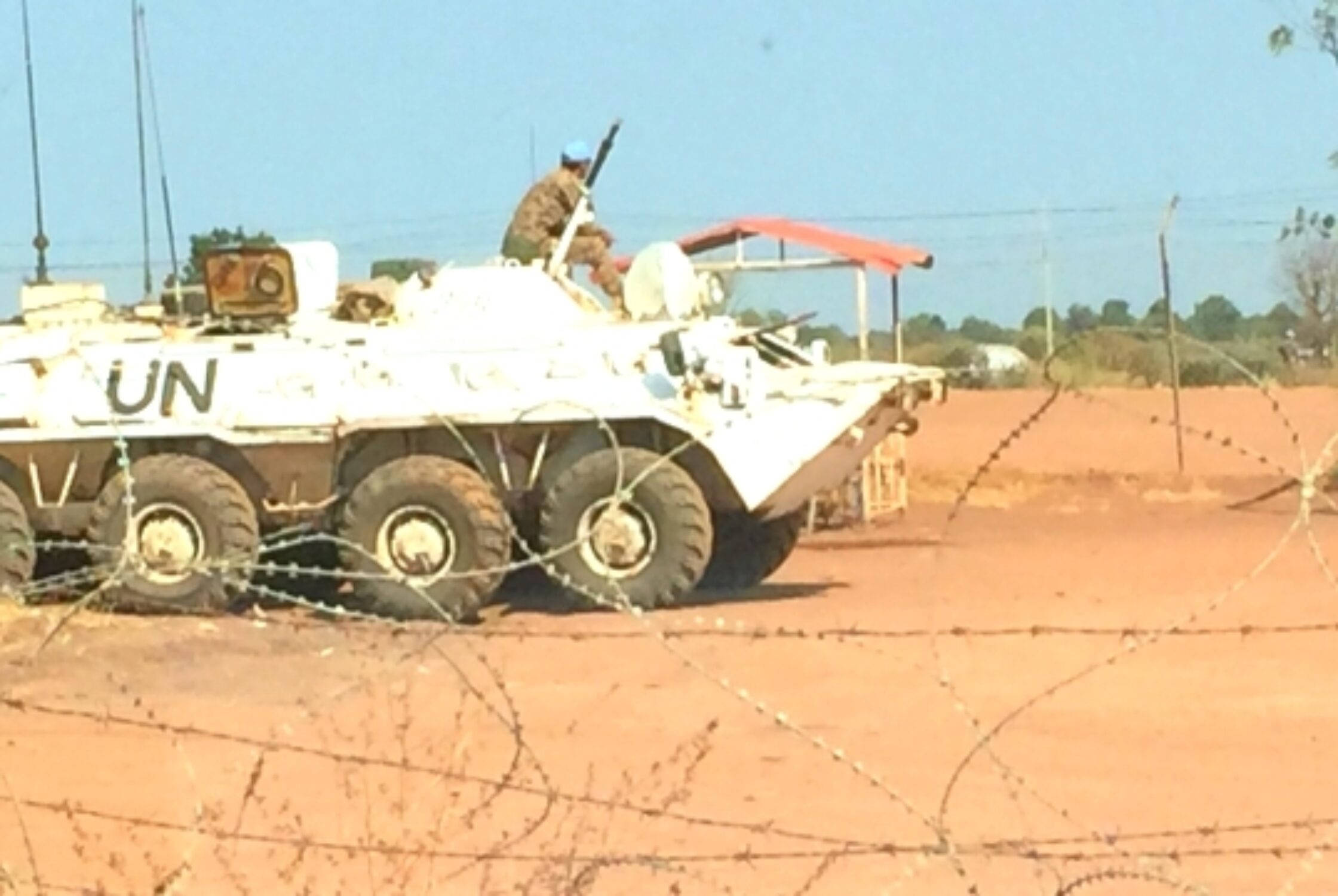Lifting the Siege in South Sudan

In December 2013 South Sudan’s capital city, Juba, exploded in violence. Fighting between troops loyal to the ousted vice president Riek Machar and those loyal to President Salva Kiir was followed by a wave of ethnic violence. Members of the Nuer ethnic group, who were seen as sympathizing with the opposition forces, were viciously attacked as neighbors turned against one another. One aid worker living in Juba at the time told RI, “We were looking at a potential genocide.”
As panic set in, thousands of people sought refuge in bases belonging to the United Nations Mission in South Sudan (UNMISS). Bosco, a Nuer man working in Juba at the time, told RI that as the violence spread, he and other civilians fled to the UNMISS base in central Juba. When they arrived, they saw South Sudanese soldiers blocking the main entrance to the base. “We went around to another side of the base, near the airport,” he told RI. “We tore down the fence to get inside.”
Scenes like this were repeated in other cities and towns throughout the country, from Bor and Malakal to Bentiu. UNMISS faced a difficult decision: either prevent these people from entering the bases, knowing they could be slaughtered outside; or allow the people in, and in the process open the UN up to retaliatory attacks. Ultimately, the choice was made to open the gates and protect the civilians.
That decision saved tens of thousands of lives, and it stands out as an example of the protective power of UN peacekeeping. Too many times in too many countries – from Bosnia to the Democratic Republic of Congo – UN peacekeepers have manifestly failed to protect civilians under threat of violence. But today, there are more than 100,000 displaced South Sudanese sheltering in UNMISS bases across the country – and that is a protection success, not a failure.
During the last few days, my colleague Mark Yarnell and I have walked through UNMISS bases in Juba and Bentiu, speaking to displaced people, the aid agencies who are helping them, and the peacekeepers who are protecting them. It’s clear that most of the civilians sheltering there still fear what might happen if they left the bases for any great length of time. And many of those we spoke to appreciated the food, medical care, and other aid that they receive on the inside. Hester, who lives in the UNMISS base in Bentiu, told us, “With everything that is being provided to us here, we cannot be ungrateful.”
That the international community was able to protect these vulnerable South Sudanese is commendable. But they cannot live under siege forever. The UN and aid agencies must create the conditions under which people can voluntarily and safely leave.
There has to be an agreement,” William, a young man living with UNMISS in Juba told us. “Otherwise, if I go out and see one of those people who attacked us, we will kill each other.
William, a young man living with UNMISS in Juba
Some IDPs whom RI spoke with said they could only go home once President Kiir and Riek Machar, make peace. “There has to be an agreement,” William, a young man living with UNMISS in Juba told us. “Otherwise, if I go out and see one of those people who attacked us, we will kill each other.” Yet most observers in Juba are pessimistic about the prospects of such a high-level deal. And even if one is reached, implementing it nationwide will take months, or even years. The people of South Sudan can’t afford to wait that long.
Enabling IDPs to move beyond the UN bases, without forcing them to do so, will be challenging. Methods that work in one part of the country may not succeed elsewhere. And they must not be done at the expense of vital services and support within the UN bases, which should continue as long as IDPs are living there. But certain activities might begin to restore the security and trust that South Sudanese have lost.
Providing more humanitarian aid in towns, increasing UNMISS patrols in markets and neighborhoods, addressing trauma through psychosocial care, and facilitating local reconciliation and peacebuilding – all of these approaches are worth considering, if done carefully and in consultation with displaced people.
Ultimately, it is the South Sudanese who will have to put their communities – and their country – back together. But the international community can help pave the way.